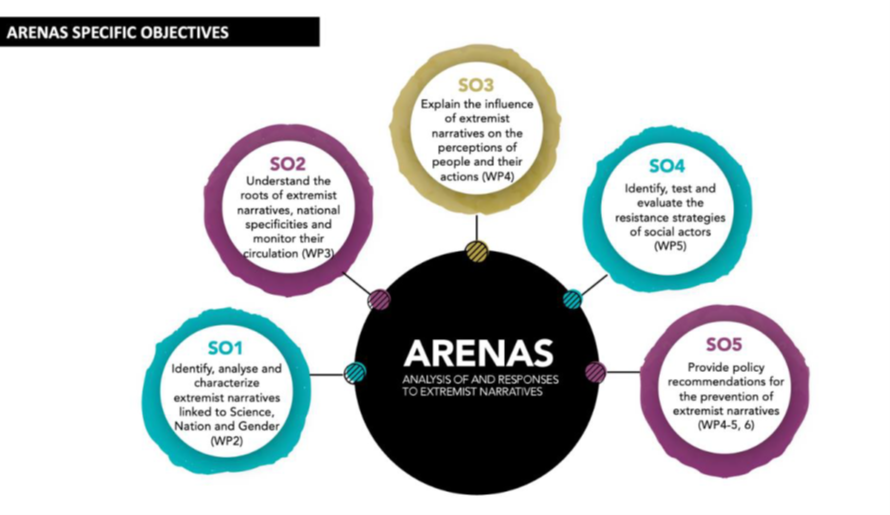The ARENAS project looks at extremist narratives that affect political and social life in Europe. It examines the nature of these narratives and seeks to understand the discourses they impact, particularly about science, gender and the nation. By understanding how these narratives work, ARENAS will empower people to resist them. To foster a spirit of people living together in harmony across Europe, policy recommendations will be made as to how to prevent such narratives from taking hold in the future.

Increased polarisation triggered by social protest movements, the Covid-19 crisis and the war in Ukraine have challenged European democracies and fostered extremist narratives, with strong and numerous consequences for citizens, politics, and the democracy.
Dominant contemporary public and political narratives argue that democracies are more fragile and more vulnerable than in the past, and that trust in political (and other public) institutions and in representative democracy as a system is declining.
European citizens are facing the “post-truth” world, characterised by conspiracy theories, overwhelming disinformation, fake news and increasing numbers of extremist narratives, especially in the context of the Covid-19 pandemic and post-pandemic.

The ARENAS consortium focuses on the narratives as crucial nexuses, because “the battle of stories, not the debate on issues” can determine the way in which citizens react to political events. Looking at extremist narratives in the European political and social context invites us to cross-reference questions of discourse and ‘semiotisation’ of social reality with the positioning of these narratives, and/or stories, which can be defined as ‘extremist’.
Extremist narratives constitute counter-narratives in the sense that they challenge mainstream worldviews and mainstream interpretations of periods of social change and major events. While extremist narratives are strongly ideological, they tend to represent mainstream worldviews as distorted by ideology. They claim to represent truth, whereas they often depict mainstream views as drawing on doxa or a conspiracy preventing the expression of truth. Thus, a strong antagonism is constructed between extremist and mainstream narratives, which is evident if we compare the narratives on the on-going war in Ukraine.
The ARENAS project considers the effectiveness of extremist narratives as fundamentally discursive, and seeks to characterise the linguistic, and more broadly, the semiotic dimension of this phenomenon, to provide concrete recommendations about their detection, characterisation, and prevention.
